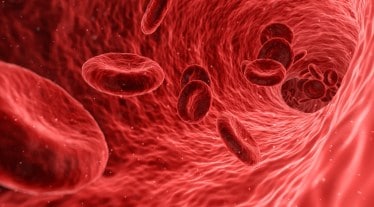By Dr. Fauzia Khan & Anubha Taneja Mukherjee
India has made significant strides on the global stage and aspires to secure a prominent position among nations worldwide. However, our country’s ambition to become a global superpower depends not only on economic growth but also on the collective support and commitment of its citizens. Out of the several pivotal factors that define a nation’s strength and potential, the health and well-being of its citizens are central. A healthy populace is not only more productive but also forms the bedrock of a vibrant and thriving society. The COVID-19 pandemic, along with other diseases that continue to remain serious concerns for the country, has underscored the critical role of public health in national development. Hence, investing in public health becomes imperative for India’s overall progress and growth.
State of Thalassemia in India
Thalassemia is one such condition that has remained a serious health concern for India. It is an inherited blood disorder due to which the body does not produce enough haemoglobin, which directly affects the functioning of the red blood cells. Due to a lack of haemoglobin, there is insufficient oxygen supply to all parts of the body. Thalassemia is recognised as a disability under the Rights of Persons with Disabilities (RPWD) Act, 2016, wherein patients can avail substantial financial and social benefits. However, updating our policies and ensuring shared decision-making in tandem with patient concerns will go a long way towards proper management and enhanced awareness about the disease.
With approximately 42 million beta-thalassemia carriers in the world, one in eight thalassemia patients reside in India. Currently, over 1.5 lakh people are living with thalassemia major in India, and the number is growing at an alarming rate. Despite being a preventable condition, over 10000–15000 children are born with thalassemia major every year.
Safe Blood for Thalassemics
For survival, thalassemia patients depend on frequent blood transfusions. However, access to safe blood remains a challenge. Unfortunately, the blood transfusion service in India is largely fragmented and lacks standardised norms covering all aspects of blood transfusions, including screening for transfusion-transmitted infections like HIV, HCV etc.
To ensure safe and adequate blood for all patients, all activities related to blood collection, testing, processing, storage, and distribution should be governed at the national level through organised supply networks. Evidence-based and ethical legislation and regulation for blood-related policies are required to meet the transfusion needs of all patients. Authorities need to sensitise the masses about thalassemia care and prioritise awareness for voluntary blood donations to fix the demand-supply gaps. There should be standardised blood screening of all the donated blood to remove any possibility of transfusion-transmissible infections.
To make blood safer for transfusion, the government of India should look at strengthening and standardising nucleic acid testing (NAT) screening across the nation. The NAT screening should be able to screen the donated blood sample for HIV 1 and 2, Hepatitis B, and Hepatitis C, and communicate the validated NAT screening test results to the concerned blood centre through IT-based information management. Public-private partnerships may be explored to address the cost aspect.
To implement the above, a stringent blood law needs to be in place, and the National Blood Transfusion Council (NBTC) should be the nodal regulatory authority. This will lead to strict implementation of its guidelines, which remain voluntary at the moment.
Prevention May be the Long-Term Solution
The battle against thalassemia in India cannot be fought by a single entity, but it demands a collective, nationwide effort. The strides made in research, treatment, and awareness are commendable, but the road ahead is still long. It is a journey that requires unity, not only among the healthcare ecosystem but also within communities, policymakers, civil society organisations, and the public.
Together, we can ensure that no child’s life is limited by this preventable disorder and that every individual can thrive to their fullest potential. Enabling patients to voice their needs will help doctors strengthen care protocols and modernise health systems. Overall, addressing patient demands such as more blood banks and daycare centres and mandating genetic and carrier testing will have a considerable impact on managing the disease burden.
While the availability of safe blood remains a key challenge, thalassemia patients also face issues pertaining to growth delays, skeletal abnormalities, enlargement of the spleen, and heart problems. Needless to say, life with thalassemia can be extremely challenging. Prevention of thalassemia is, therefore, imperative.
By combining the strengths of its more than 1.4 billion citizens, India can overcome the thalassemia challenge and pave the way for a healthier, brighter future for generations to come. Women have a special role to play in thalassemia prevention. In fact, it is imperative to educate young women about thalassemia, since they are the ones who will be carrying babies, and if they can be convinced about getting the test done, then half the battle is won. For this very reason, women’s empowerment becomes extremely important because women make better decisions for themselves and for their families. Also, when women are tested positive for thalassemia, they still hide their thalassemia status before marriage since stigma is higher for women, so there is a need to sensitise them and change their mindset. Thalassemia patients, however, should be at the forefront of this mass drive, as nobody knows thalassemia better than them. Thalassemia patients should not be looked at as just beneficiaries but as partners in the policymaking process.
(Dr. Fauzia Khan is a Member of Parliament, Rajya Sabha & former Minister of State for GAD, Education, Health, and WCD in the Government of Maharashtra & Anubha Taneja Mukherjee is a Member Secretary, Thalassemia Patients Advocacy Group (TPAG). Views expressed are personal and do not reflect the official position or policy of the FinancialExpress.com.)
